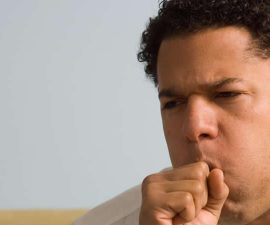As the name suggests, sinus toothache is ache /pain around the teeth rising from sinus problem (such as sinusitis, inflammation of the sinuses ‘air filled cavities in the skull’). It usually comes together with nasal congestion, runny nose, or other symptoms of sinus problem. Although it could be painful, many times it will heal in time and doesn’t pose to the risk of serious complications. There are also some home treatments to help ease the pain and boost your recovery.
Sinusitis home remedies
Sinusitis may be the most common cause of sinus toothache, especially ache /pain in the upper rear teeth which are closer to the sinuses. If your toothache does link to sinusitis, it will improve as the inflammation of your sinus clears up.
The good news, there are plenty of ways you can do at home to help improve sinus inflammation more quickly. Some are outlined below:
Get adequate fluid!
Keeping hydrated is essential to help keep your sinuses moist. For adults, it’s commonly recommended to drink about eight 8-ounces glasses of water a day.
Dark yellow urine signals dehydration – make sure to drink plenty of water every day so you have clear urine when you pee. The lighter your urine, more hydrated and healthier you are.
But be careful to caffeine and alcohol. They can act like a diuretic, causing accelerated dehydration.
Clean air and friendly humidity
Many times sinusitis occurs after infection such as after a common cold event. But it also can occur without infection in a few cases. Whatever it is, your sinuses are more fragile than usual when you have sinusitis – and bad air can worsen the problem.
If you use a heater or air conditioner unit – make sure that it works well. Do the maintenance regularly so your indoor air is clean and safe enough for your nasal cavities!
Ventilate your room as well! Just make sure to understand when to seal your room and when to open it up. For instance, open your doors and windows during warmer days. But don’t do that when pollen count is high!
Your room humidity matters, too. Extreme levels of humidity (both too high and too low) are not friendly for your nasal cavities. If necessary, use a humidifier! This is particularly true during dry months such as from October to April.
Avoid your allergen!
If you have allergy, avoid a direct contact with your allergen. Allergy can worsen your sinusitis symptoms. In some cases, it can also trigger the condition.
Your allergy may contribute to cause inflammation of your sinus and mucus linings. This can affect and inhibit the normal drainage of mucus to the nose. Therefore, allergy can sometimes trigger sinusitis. And when you already have sinusitis, your allergy (when it flares up) can increase your chances of having secondary infection and worsen the symptoms.
The allergen can vary from person to person. The main ones include dust, pet dander, mold, pollen, odors, tobacco, and smoke.
What else?
- If necessary, use saline nasal solution to help improve the congestion more quickly. You can get it from a local pharmacy store, choose one without decongestant!
- Another idea is with steaming water. Fill steaming water into a bowel (deep bowel is more recommended). Place a towel around your head, and then breathe the steam in by positioning your face over the water – but do this carefully!
- Spicy foods may help, too. It’s thought that they may help open and clear your nasal cavities, improving the nasal congestion. These include hot peppers, mustard, curry, and wasabi. Eat them in moderation!
Home treatments to ease toothache
Not all people with sinusitis experience toothache. But pain /ache in the upper teeth is quite common with sinus problems.
The pain of sinus inflammation could be painful a lot (especially over the affected sinus). Sometimes it could be strong enough to spread to your upper teeth or jaw.
The use of antibiotic right away is not necessary, even though if your sinusitis is caused by bacterial infection. But if the symptoms last longer than usual (more than 10 days, for example), see a doctor! Take antibiotic only with prescription to avoid the risk of antibiotic resistance.
Lifestyle measures and home remedies mentioned above should be helpful enough to cope with your sinusitis symptoms. But if your sinus toothache bothers you a lot, the following home treatments can help ease it:




